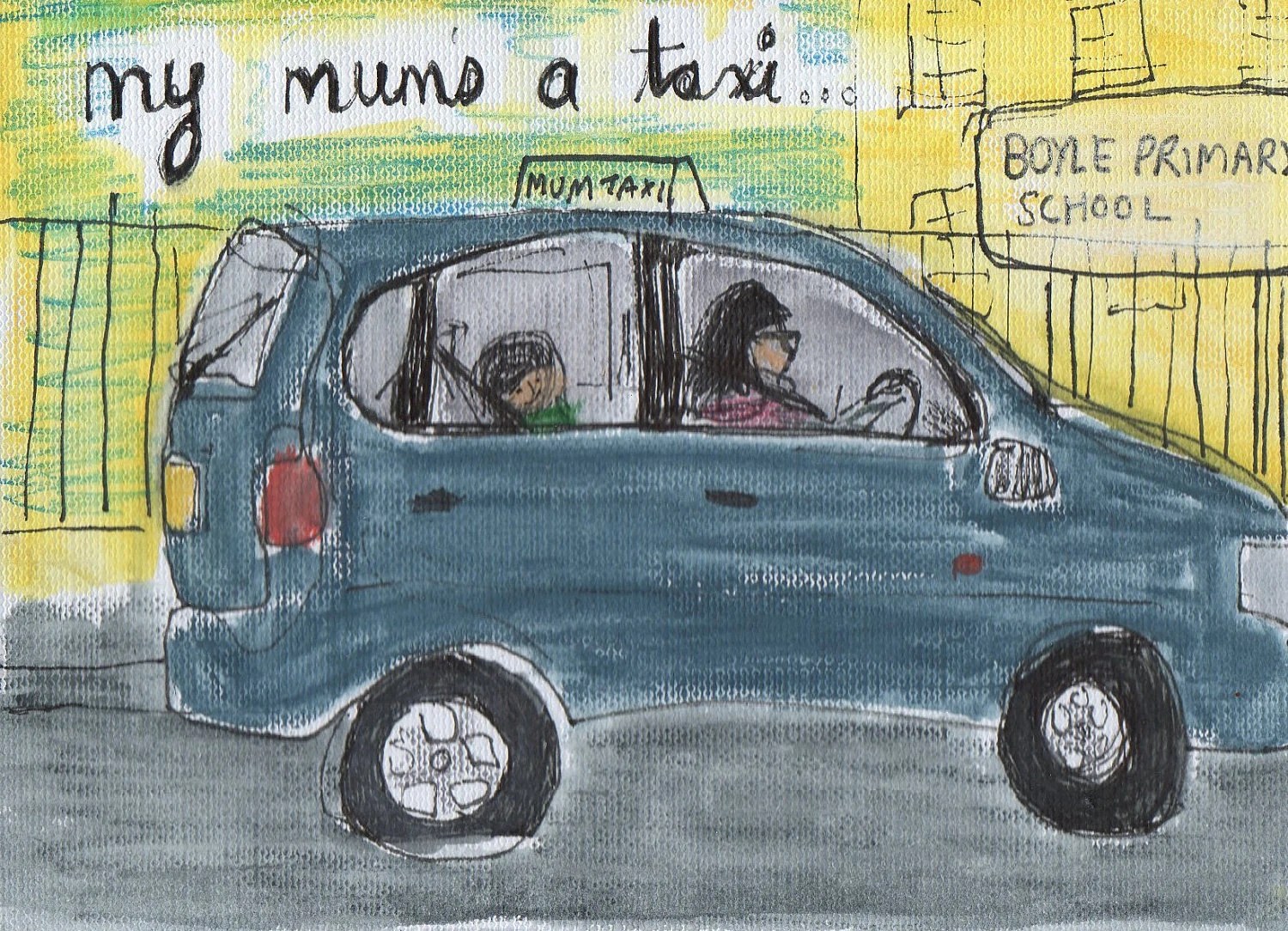Yesterday I was goaded by a 16yr old girl who recently passed her driving test and wanted to know if I had got mine my driving license yet.
This young lady was about 8 or 9 when she heard about my knocking a cyclist over on my driving test in Dublin, an incident which resulted in the test merely being cancelled and rescheduled for another day. The cyclist was meanwhile thrown into the back of a transit van with her crumpled bike and taken home by builders. My driving tester took the rest of the day off in shock resulting in three other people failing to sit their test.
My driving tester also refused to drive the car back to the test centre as he wasn’t insured and gave me the option of either leaving it marooned on traffic junction in Rathgar to be picked up later or driving it back to the centre despite having minutes before just knocked a lady over on my driving test.
Not wishing to bother Jim (my driving instructor) I drove his Nissan Micra back and then drove it back to Dun Laoghaire while he spoke to his brother, (a traffic cop) about who would be held responsible insurance wise if someone ‘theoretically’ where to knock over a cyclist in a dual control Nissan Micra on a bicycle lane.
Which is my way of saying that I haven’t had a great experience with driving and haven’t got my test yet at the age of 33yrs old.
There is a certain amount of shame attached to not driving I guess, especially when you see 16yr old girls half your age getting theirs. There is also a certain degree of freedom that I haven’t experienced. For instance if I wanted to go up to Ballycastle tomorrow it would involve waiting for a slow Ulsterbus service or working out some other way of doing it with lifts or hitch hiking perhaps.
I couldn’t load the car up withpaints if I wanted to paint, or put the guitar in the back if I wanted to write songs looking out over the Atlantic and listen to cool CD’s (or cassettes if you’ve a aging Nissan Almera like us) on the way up to Ballycastle.
I can’t give lifts for people and have to rely sometimes on others, sometimes on long guilt laden trips back from some far off place wishing that I could drive and give H____ a break.
The biggest fear I suppose is what will happen when the dreaded call comes through that so and so has been rushed into hospital or if you need to get somewhere fast.
How will you cope if you have to get there and you can’t just hop into your car and get there?
But I guess that those calls won’t be easy even with a car and a driving license.

So the odds seem fairly well stacked that I should have learned to drive years ago and that it’s a serious handicap to a full and fulfilled life.
Cars seem to be woven into the fabric of our society as a vital part of that society. So much of our lives revolve around the convenience of the motor car.
I was just watching something on the BBC news about people gurning complaining about the price and tax of petrol and oil and how it was disgraceful. For these people the ability to get around the place in their cars and lorries is a fundamental human right.
But here is the thing.
Cars and mobility aren’t necessarily all they’re cracked up to be. Maybe that’s a lie we’ve been sold by car manufacturers and oil companies over the years for them to keep the shareholders happy. I don’t know, I’m just throwing it out there or at least wanting to question why we’re so beholden to the car.
Here are some things from ‘The Rough Guide to Ethical Living’ that we should at least take on board for consideration
– a typical car produces it’s own weight in carbon dioxide for every 6000miles driven
– exhaust emissions include a cocktail of carcinogens and fumes which according to the government are largely responsible for the airborne pollution that cause 25,000 premature death and as many hospitalizations each year in the UK
– more British people have died on roads since 1945 than were killed in World War II. In fact according to this website
‘By the year 2020 the World Health Organisation predicts that death and injury caused by the motor vehicle globally will increase by about 65% and become the third biggest cause of death.‘
the third biggest cause of death!
– new roads and cars consume huge amounts of resources from countryside to oil.
Our thirst for oil is constantly putting us on a collision course with other countries and with the rest of creation. We have to drill more out of the way places and there are more people demanding oil so that they can live the lives that we have Westerners have been modelling for decades.
So more people, less and less oil.
Driving is going to get more expensive and become more and more an activity for the well off.
So yes, there is a burden of shame and stigma attached to me being unable to drive (at the moment) but should that be the case if we’re being loving to our neighbour, our global neighbour?
Perhaps we need to start thinking of ways to doing things.
Actually, we are going to have to start new ways of doing things because less and less of us are going to be able to afford driving a car in the future.











